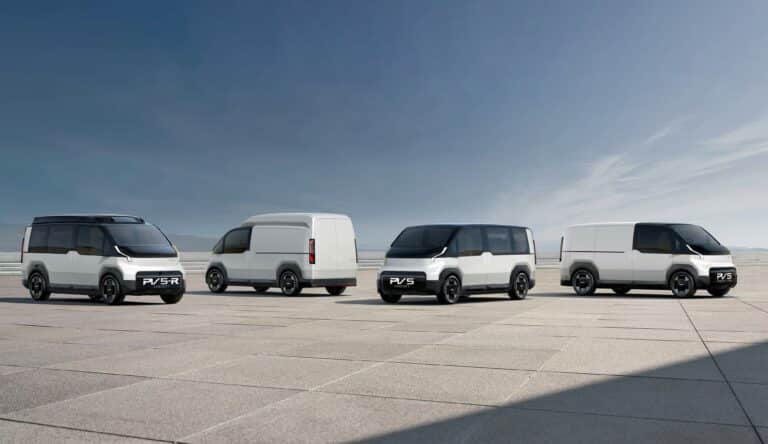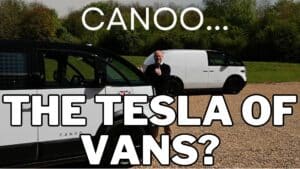Volkswagen has released teaser images of the new Transporter T7 van, and as we all expected it bears more than a passing resemblance to the new Ford Transit Custom due to the commercial relationship between the two companies. This van will allow VW to enter the electric van market in anger for the first time (let’s not talk about the unpopular ABT-e Transporter, or the electric Crafter that didn’t make it to the UK) and given the drivetrain that we already know about, it’s likely to do very well indeed.
Kia has unveiled some concept electric vans that form the basis of a fully-fledged entry into the UK market in 2025. The first, named PV5 will be offered as a van, chassis cab and passenger carrying variant, followed by the larger PV7. Given the success of this manufacturers electric passenger cars here in the UK, I’d expect these vans to prove very popular. Definitely one to watch.
Bi-directional charging isn’t a new concept, indeed the Ford F-150 Lightning truck sold in the US offers the feature which allows power from the vehicle to be transferred to the domestic circuit at the driver’s home. The UK government has given £4.8 million to support four projects which are involved in developing the concept. V2X (vehicle-to-everything) technology could benefit businesses by allowing the energy stored in the vehicles to be used to power their operations, for example during disruptions in the normal supply. As part of the project, 20 Royal Mail delivery vans are being converted to bi-directionally charge, a process that can be done wirelessly in the way we charge our mobile phones.
And finally…here’s an interesting one. Leasing giant Arval has suggested that some operators are choosing electric SUV’s in preference to a battery powered van. The main reason suggested is that cars generally have a better range than a van and that there are certain circumstances where the substituted car would work as well. But it made me think. If you fold the seats down to put a load in, and that load weighs a fair bit, it’s going to bring the range down in the same way a van carrying a heavy load will suffer. In addition, there are VAT and Benefit in Kind implications which can be major for both the company and the driver if he or she is allowed to use it privately. I’m not sure whether this is a particularly great concept and it certainly isn’t new but anyway time will tell!




